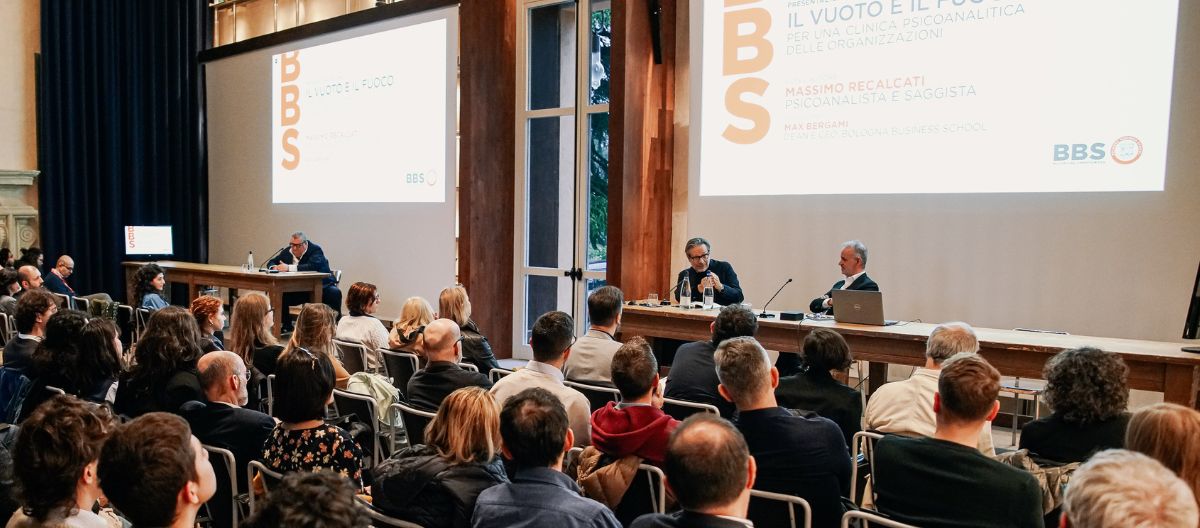
The Void and the Fire: Massimo Recalcati explores the soul of organizations at Bologna Business School
8 May 2025“The beginning never stops beginning” – with these words, Massimo Recalcati captured the essence of his theory on organizations, recently presented at Bologna Business School.
The event, centered around his latest book The Void and the Fire, offered a profound insight into the unconscious dynamics that animate collective subjects.
In conversation with Max Bergami, Dean and CEO of Bologna Business School, and Andrea Lipparini, Associate Dean for the MBA programs, the renowned psychoanalyst drew a parallel between the endurance of love and the vitality of institutions. “When love endures over time, it is because it is always the first kiss,” Recalcati explained. “The beginning continues to begin anew.”
At the heart of his analysis are four unconscious codes that govern every organization. The paternal code balances law and desire, avoiding both authoritarianism and inconclusiveness. The maternal code preserves the distinction between name and number, reminding us that “there is nothing worse than working in an organization and feeling like a number.” The fraternal code cultivates what Recalcati defines as “team narcissism”, a sense of belonging that transcends individual rivalries. Finally, the feminine code safeguards singularity, countering conformist uniformity.
Particularly striking was his reflection on contemporary leadership, which Recalcati clearly distinguishes from the “master’s discourse.” A true leader, he argued, is not one who imposes vertical authority, but one who testifies to the fire and, above all, knows how to safeguard the void. “If a leader wants the fire to spread within the organization, they must not fill the void,” he stated, emphasizing the need to “dissociate responsibility from ownership.”
Addressing the theme of founders, Recalcati shared a penetrating observation: “In the eyes of founders, there is the desert.” Their greatest challenge is to know how to set, cultivating a long-term vision aimed at ensuring their succession.
The discussion concluded with a broader diagnosis of our times, characterized by an “unprecedented link between paranoia and melancholy,” where democracy represents “the best antidote to melancholy,” as it embodies the experience of mourning uniqueness and embracing pluralism.
The event confirmed Bologna Business School’s commitment to a model of education that integrates diverse fields of knowledge, offering the Community valuable conceptual tools to rethink organizations as living entities, capable of preserving their original dynamism against any bureaucratic or authoritarian drift.
